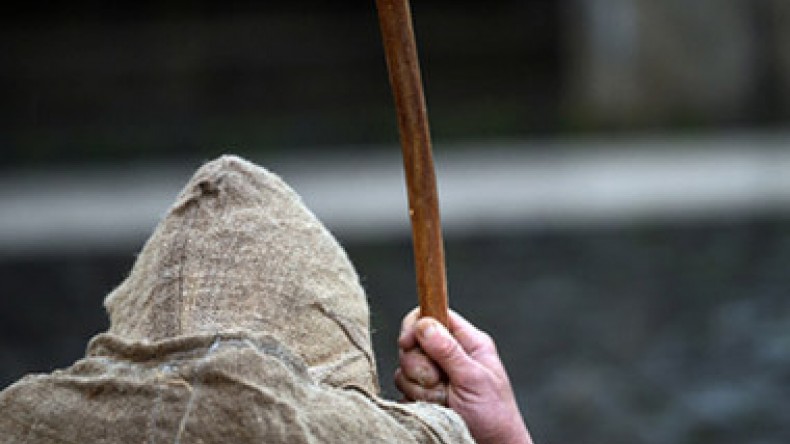
Christianity as life ring for Europe
The Western press reeks with headlines saying that the rights of Christians in Europe are being trampled upon. Analysts are blowing the whistle over the looming decline of European traditions and values and the rise of Islamic alternative. Many are literally frightened at what’s happening in Europe today, at things that would have been utterly unthinkable in the not so distant past, above all new forms of discrimination, if not persecution, against Christians. To make sure it’s true, one needn’t go deep into research, but just look through newspapers over the past several weeks, the Voice of Russia reports.
Take, for instance, a huge outcry in Britain after Muslim staff working for the Marks & Spencer retail chain was given permission to refuse to serve customers buying alcohol or pork. M&S’s official spokesman said the move was part of the company’s efforts to promote an “environment free from discrimination”. M&S considered applying its policy of tolerance to other religions, including to Christians, who don’t want to work on Sundays, and to Jews, who chose not to work on Saturdays. Torrents of public anger and calls to boycott the chain came down on M&S, forcing it to revoke its decision.
As they flirt with life norms alien to Europeans, EU dignitaries, obsessed with “political correctness”, habitually cite multiculturalism and tolerance. But the decorum of the official etiquette left aside, this is defeat and degradation.
There are two polarized processes going on in Europe. European Muslims have an exclusive right to preserve their life style and code conduct based on Islam, while European Christians and Christian-oriented Europeans are denied the right to preserve theirs. And all that piles upon the creeping secularization of public life. Arthur Schlesinger Jr. described multiculturalists as ethnocentric separatists who see little in the western heritage beyond Western crimes. “We are actually seeing double standards”, echoes Prof. Oleg Matveycgev of the Higher School of Economics in Moscow.
“As the world is getting more globalized, the ‘divide and rule’ idea is gaining in topicality, hence attempts to cultivate all sorts of differences. That’s the essence of post-modernist philosophy. It’s not against Christian values in particular but against any values of any collective identity. It is destruction-oriented.
Christianity was the first to be attacked - just because it’s so dear and near. Similar attempts have in fact been made since the Age of Enlightenment. Today, you will hardly find a truly faithful European anywhere in Europe. Save for traditionally Catholic Poland and Spain, Muslims would have outnumbered Christians in Europe,” Matveychev told the Voice of Russia.
Advocates of immigration argue that immigrants help boost the tax base and compensate for increasing social spending needed to support Europe’s ageing population. Being both workers and consumers, immigrants drive both consumer demand and employment up, they say. By opening businesses of their own, they directly contribute to job creation, which benefits economic growth.
But life is not just about economy. The above processes are hardly good for European civilization because they erode its founding pillars. Immigrants bring their own culture, traditions and faith and create replicas of their native worlds in the very heart of Western civilization. What’s more, they have every help from European authorities leaving native Europeans feel anything but at home.
Instead of traditional Christianity, Brussels offers a new faith – in globalism, egalitarianism, open borders and a world government. European policymakers argue that people across the globe are eager to accept Western values and culture as the most enlightened, most rational, most advanced and most civilized mentality. Unshakable belief in the universality of Western culture is, perhaps, the biggest mistake of the architects of New Europe.
It turns out that secular ethics has geographic borders. Quite unpredictably, those invited into Europe to support its economy are refusing to share secularist ideas.
Samuel Huntington, the author of The Clash of Civilizations geopolitical bestseller, points out that political principles are a fickle base on which to build a lasting community.
Europeans are putting a lot of effort into creating a multi-civilization world, a world that wouldn’t belong to any individual civilization, a world devoid of a cultural nucleus. But common sense teaches us that unless a house is built on a solid foundation, it risks collapse.
Newsfeed
Videos






























